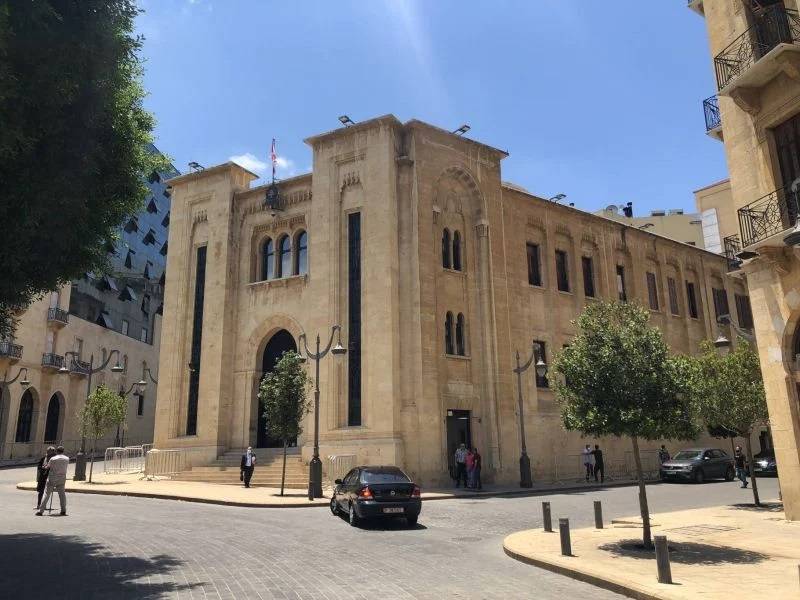
The Finance and Budget Committee met Wednesday to discuss the 2022 draft budget and amendments required to obtain a World Bank wheat loan. (Credit: P.H.B.)
Following a meeting yesterday in preparation of the draft budget law for 2022, the parliamentary committee on Finance and Budget approved the amendments requested by the World Bank regarding a law establishing a loan of $150 million to finance wheat imports in Lebanon for several months. According to the Chairman of the Finance Committee, MP Ibrahim Kanaan, these amendments had been presented to the General Assembly of the Parliament last July by the outgoing Minister of Economy and Trade, Amin Salam. The law was passed at the time, but the amendments were grouped in another text that was referred to the Finance and Budget Committee. "Now that these amendments, which modify some of the modalities for the execution of the loan that the World Bank was requesting, have been validated, the text will be sent back to the Assembly, which will have to approve them," explained Kanaan, without being able to provide a date. "The original law is still in force, but the World Bank will not agree to disburse the funds without these changes," he added.
Salam told L’Orient Today that Wednesday’s Finance and Budget Committee meeting was to get the final approval for the final law to execute the loan, and that the “loan agreement was already passed.” “The committee wanted clarifications on the coordination mechanism with the World Bank, and the method of payment. The method of payment has been set clear by the Ministry of Economy. Lebanon will pay the World Bank back through Bank du Liban over a period of 18 years,” Salam added.
The outgoing Minister of Economy expressed his satisfaction with the agreement, highlighting the fact that it would allow Lebanon to ensure its wheat needs for "nine months." In late July, he had mentioned a range of "six to nine months, depending on world wheat prices.” The minister added that the adoption of these amendments to the World Bank’s soft loan (with rates expected to be below two percent as well as a grace period) is part of an approach that contrasts with the "old supported policies that led us to all the challenges we faced," a reference to the import subsidy mechanisms put in place by the Bank of Lebanon in the first months of the start of the crisis in 2019. The World Bank loan is indeed intended to serve as a substitute for subsidies on wheat (used to make flour for Arabic bread), in a context where the latter must be lifted by the Banque du Liban. An increase in the price of bread will continue to have a severe impact on the most disadvantaged segments of the population.
Budget and customs dollar
The committee also focused on the review of the draft budget for 2022, since its adoption is required by the International Monetary Fund, which Lebanon had requested financial assistance from. "We have received the report of the Ministry of Finance on the expenditures and revenues actually recorded so far and therefore already registered in the public accounts,” said Kanaan. “The committee had requested this because it considered that it could not rely on a draft budget based on theoretical projections not aligned with the real exchange rate. The ministry also provided projections using different exchange rates," he added.
The committee is expected to revisit the issue today. Kanaan also said that the traveling decree to establish the customs dollar was referred by President Michel Aoun to Prime Minister-designate Najib Mikati. This is a measure to adjust the exchange rate used to calculate customs duties to BDL’s Sayrafa rate (LL26,100 to the dollar), while it is still aligned with the official parity (LL1,507.5). "The president considers an abrupt switch from one rate to the other untenable," said Kanaan. Typically used when the government is in charge of current affairs, as is currently the case, an itinerant decree is signed by the relevant minister, the prime minister and the head of state, and sometimes the finance minister.